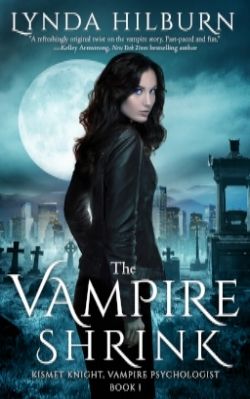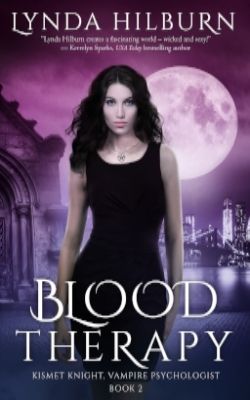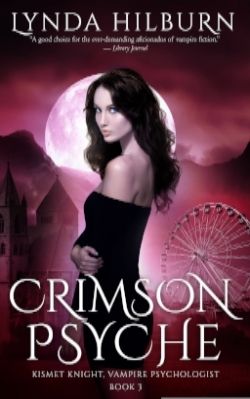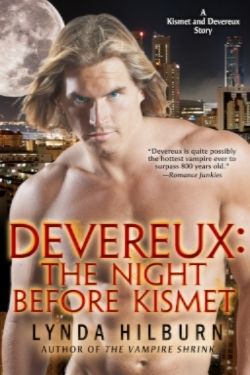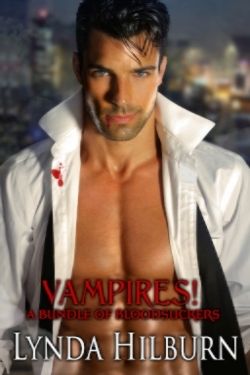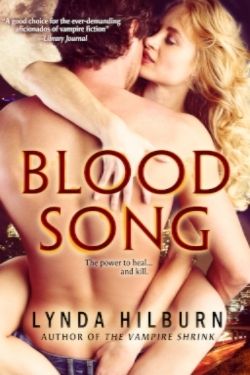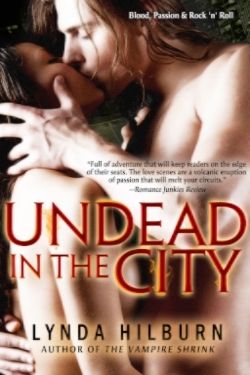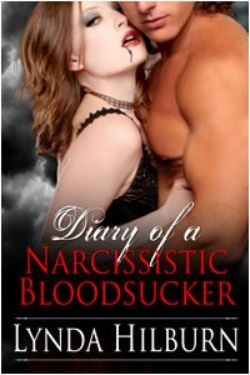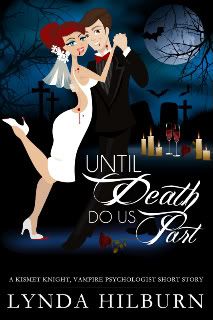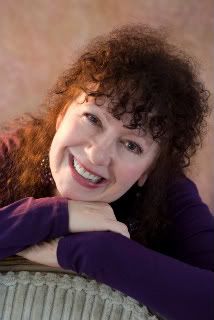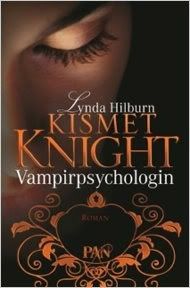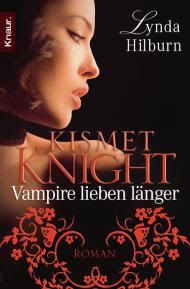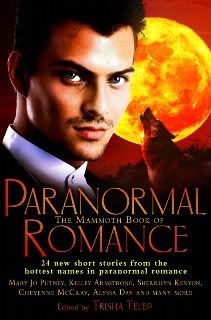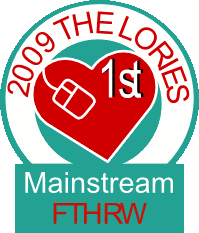
I met with a group of authors recently, and the subject of "starting over" came up. They shared some wonderful, inspirational stories about the twists and turns of a publishing career, and I wish I'd asked permission to tape the discussion. It really was very helpful to hear how these successful authors rose from the ashes at some point in their careers. In many cases, the authors in question were certain their careers were over -- that they'd never sell again.
Do you have an inspirational story? Words of wisdom based on a dark time in your writing career? It would be great if you'd be willing to leave a comment here with the general info about your "starting over" situation (no specific identifying details needed) or if you'd write a brief article I can post to the blog. If you'd like to send your story to me directly, please send it to:
All inspiration is good inspiration.
July 22, 2009:
I will start adding stories here as they trickle in.
*****************
Brenna Lyons
I've had to start over, more or less, twice in my career. The first time was after a seven-year dry period. I'd lost my muse. In rebuilding my life during a separation, I rediscovered writing and held on with both hands. It revitalized me, brought me back to life and reminded me what had always meant so much to me.
The second time was when the publisher I'd placed most of my work with finally went too far, and I pulled everything. It was my choice to do it. It was necessary. It was exhilarating. It had me shaking in terror. But within a few months, I'd placed everything again. I had publishers asking me for one series or another. At that point, I realized that a resume and name will travel with you, even if you've had to leave a bad situation.
Brenna
*********
Susan Kearney
When I started writing my first manuscript I knew nothing. I didn't even have chapters in the book or commas. Eventually, I had an agent take me on and then drop me because she was intimidated by the size of the box I'd sent the manuscript in. But after writing 5 manuscripts in 16 months and rewriting each one about 5 times, I finally got the call!! Kensington books offered to buy my Viking Historical romance. On proposal!! Of course I told everyone!! And then had to fisnish the book in 2 months. And when I sold the second book, I finally got another agent. But some people didn't believe that I'd really sold a book. But I had an advance, an editor, a contract and an agent. I was on my way. And then Kensington dropped the Heartfire Line. I kept the advance and got back the rights, but those 2 books were never published. And my agent dropped me at the same time. My career was over before it had begun--or so I thought.
People didn't say it to my face, but I just knew they thought I'd lied about selling a book. I worried I'd never sell again, but I didn't think about giving up. I don't know why--I was very stubborn. Four months later I switched from writing historicals to romantic suspense and targeted the old Intimate Moments line at Harlequin. But after she rejected the story, the editor suggested I send the proposal to Harlequin Intrigue. So I did. And an editor called to make an offer. Now bear in mind I had never read a Harlequin Intrigue. When the Intrigue editor called she offered to buy the proposal and said that of course for Intrigue I'd have to put in more action and quicken the pace. I answered, "Of course." But I didn't really have a clue. :) So I went out and bought ten Intrigues and then revised. And went on to sell over 50 books. I bet that agent who dropped me wishes she hadn't. :) But I also learned that this book business is crazy. That so much is simply out of our control. I don't take anything for granted. And with each new contract I'm thankful to sell another book.
http://www.susankearney.com/
Laura Resnick
Years ago, I wrote a proposal for an urban fantasy series about a struggling actress who has fantastical adventures in New York City. My then-agent sent it out to three houses. They all rejected it, and the agent permanently retired the proposal, refusing to send it elsewhere and refusing to discuss it again.
A few years later, I left that agent. Shortly thereafter, I sent out the urban fantasy proposal on my own to see what would happen.
Within 2 months, I had a good offer for it from Luna Books. So I hired my next agent, who negotiated the deal for this offer.
Luna released the first book in the Esther Diamond series, DISAPPEARING NIGHTLY. However, the packaging was generic and off-target (you couldn't tell anything at all about the book from the cover, not even that it was fantasy), the book was released without promotion or support in mid-December (the worst month of the year for fiction, unless the book is positioned to be a Christmas gift), and sales were poor.
A few months later, Luna cancelled the second and third books, and they terminated my contract. Next, my relationship with my agent (who was my fourth agent) quickly began to resemble that of a dinner guest whose hostess starts yawning copiously and glancing often the clock. So I left.
I still believed in this urban fantasy series, so I wanted to try to sell the second book and relaunch Esther Diamond. So I began looking for a fifth agent to represent me. Everyone I queried rejected me. Some were polite, some were not, and all of them thought this series was unmarketable. Nor were these agents at all interested in discussing my other projects.
I had already, prior to these events, had a very bumpy career, having been through (did I MENTION?) four agents and multiple publishers. But I was feeling badly winded by the events of the past few months, and I found myself just lying there on the floor, gasping for air. I began wondering if I would look back on this period -- years later, doing something else for a living -- as the point where my writing career had entered its death spiral.
As I started eventually regaining my breath (fortunately, I have a lot of innate resilience), I decided that rejection by agents was not accomplishing anything at all besides making me feel depressed and discouraged. So I resolved to forget all about agents and send the proposal for book #2 in the Esther Diamond series out on my own. This way, I reasoned, I'd get rejected by people (editors) in a position to publish the book, which seemed at least marginally more productive than being rejected by people (agents) not in a position to publish it. I compiled a list of markets that published urban fantasy or that had said they were interested in it, and I began submitting to them.
Three weeks later, DAW Books, a major fantasy house, put an enthusiastic 3-book offer on the table for Esther Diamond, for slightly BETTER money than my fourth agent had negotiated for me at this series' former publishing house. Rather than hiring a fifth agent, I instead hired a literary lawyer to negotiate the contract for me. It's an arrangement that worked so well, it's how I've been handling my career ever since then; I run my career and make my deals, and my literary lawyer negotiates my contracts for an hourly legal fee. Not only am I making more money that I used to, I'm also getting better contractual terms now, too.
Since making the sale, I have delivered the next Esther Diamond novel, DOPPELGANGSTER, to DAW Books -- where it has met with tremendously gratifying enthusiasm and support. Additionally, DAW comissioned award-winning cover artist Daniel Dos Santos to do the cover illustration, and it's fabulous! The cover art is eye-catching, dynamic, clever, sexy, fun, and sets exactly the right tone for this urban fantasy novel -- and also for this series, which DAW is relaunching with this book in January.
We don't have a final bookcover yet, but you can see Dos Santos' illustration for DOPPELGANGSTER (January 2010)at his website:
Elissa Malcohn
Ever since I was a kid, I knew that whatever job I worked would support my writing. That equation became dicey when I faced steady multiple shifts, for various reasons. In each of my long-term jobs, I ended up serving two departments simultaneously while freelancing to supplement my income.
My first professional sale (to Asimov's in 1984) made me a John W. Campbell Award finalist, and suddenly I had more attention than I knew what to do with. The attention was wonderful, and I tried to respond to requests for more work. But there came a point where my submissions failed consistently, and for good reason, because I was living my life in a state of exhaustion. On top of the workload, I was also dealing with a debilitating physical condition finally remedied by hormones.
Treating that condition gave me the confidence to quit my job and freelance fulltime for two years, but my writing and editing were corporate rather than creative. I produced subpar fiction drafts that I knew were not submission-worthy; whatever I'd had before, I seemed to have lost it. I kept a journal. I published articles and book reviews. During the 1990 recession I again entered regular employment that included all-nighters. Other circumstances made me the sole wage-earner for my household. I saved my creative sanity by experimenting with mixed-media art, and managed to exhibit and sell some pieces.xI returned to fulltime freelancing in 2003 and started writing for submission again. Completing my first short story in more than a decade told me I still "had it."
My personal mantra is, "Nothing is wasted." The frustrations and heartaches of my years away let me reach a place in myself that ultimately benefited my writing. It had less to do with craft than with a state of being. I am thankful for every work I can produce, every sale I make, and now for every release. My most recent challenge involved Aisling Press, which published the first volume of my Deviations series in 2007 and tanked in 2008 before it could publish the sequel. With a six-book series drafted and readers asking me when the next book was coming out, I began to release the series as free downloads, with plans to make the third volume available in December. I am very grateful to people willing to review what are now self-published e-books, to Manybooks.net for making those books available, and to everyone who has downloaded the work from there and from my website. And I am thrilled that publications are again picking up my short fiction, poetry, creative nonfiction, and articles.
http://home.earthlink.net/~emalcohn/index.html
Shanna Swendson
I sometimes say that I've had two writing careers: the training wheels career and then the real one. At least, that's how I like to rationalize that long dry spell that came in the middle. I sold my first book when I was very young and very naive about the business. Because I sold the first book I wrote to the second publisher I sent it to, selling a book seemed easy to me. I sold two more to that smaller publisher, then with my next book, I sold to Silhouette. I did have a couple of proposals rejected, but did end up selling another one. All of this came within about four years.
And then I hit a brick wall. My editor left and then my line folded, and I didn't seem to fit anywhere in the house. I tried writing a single title and got an agent, but kept getting those "we like it, but not enough to buy it, send something else" rejections. The "something else" sat for more than a year with no response, and then my agent stopped responding to my e-mails and calls -- and didn't even respond other than to sign the registered mail card when I sent the official break-up letter. During this time, I got laid off from my job and was trying to get a freelance writing business off the ground, so I was even more frantic to sell something. I got really busy, writing a lot of proposals, rewriting older books to better fit the market, and submitting to both agents and editors. Whenever I seemed to have a positive response -- like an editor at a conference telling me to submit -- I ended up feeling like I was taking a step back -- getting a form rejection letter from the editor who'd told me to submit. I reached the point that writing wasn't even fun anymore, and I felt like a pariah, like there was some blacklist in New York with my name on it.
During all this time, I'd had this wacky little idea about a book I thought of as "Bridget Jones meets Harry Potter," combining my two favorite genres, fantasy and chick lit. I hadn't done anything with it because I wasn't sure there was a market for it. I hadn't found anything quite like it, which I worried meant no one wanted it. I was afraid that the chick lit elements would keep fantasy editors from liking it and that the fantasy elements would keep it from being chick lit. But when I was chatting with an editor about it at a conference and she got excited, I decided to give it a shot. I wrote it mostly because I wanted to write it, because it was what I wanted to read that I couldn't seem to find anywhere, and when I was done, I had a feeling I had something special. I still wasn't sure if it was chick lit or fantasy, so I sent a query to one of the few agents I could find who represented both, and she asked for it, then took me on as a client.
The book did get rejected all over the place -- including by the editor who'd initially been excited about it -- but it only takes one, and Ballantine Books bought it, eight years after my last contract. Enchanted, Inc. was published in 2005, went on to be published in multiple countries and has even been optioned for film by a major studio, with the screenwriter of P.S., I Love You, Kate and Leopold, and Hope Floats hired to write the screenplay. There have been three sequels, also published internationally. I think I appreciated this phase of my career more because of what I'd gone through, and the early phase of my career gave me the experience and knowledge to handle what came later, without it counting against me, since it was so long ago and in a different field. I was a debut author and a veteran, all at the same time, so I knew how to deal with editors and generally what to expect from the process even though I was making a fresh start. I don't know that I'd plan my career to go exactly the way it's gone if I had it to do over again, and I wouldn't say that I have no regrets, but it did work out for me, and I remind myself of that whenever I hit some kind of set-back.
Shanna Swendson
ENCHANTED, INC., ONCE UPON STILETTOS, DAMSEL UNDER STRESS and DON'T HEX WITH TEXAS
Now available from Ballantine Books
Fairy Tales for Modern Times
http://www.shannaswendson.com/" href="http://www.shannaswendson.com/

 of their choosing? Could they also get demoted? They were haunting a mansion but didn’t scare enough people so they end up having to haunt an outhouse.
of their choosing? Could they also get demoted? They were haunting a mansion but didn’t scare enough people so they end up having to haunt an outhouse. of their choosing? Could they also get demoted? They were haunting a mansion but didn’t scare enough people so they end up having to haunt an outhouse.
of their choosing? Could they also get demoted? They were haunting a mansion but didn’t scare enough people so they end up having to haunt an outhouse.







